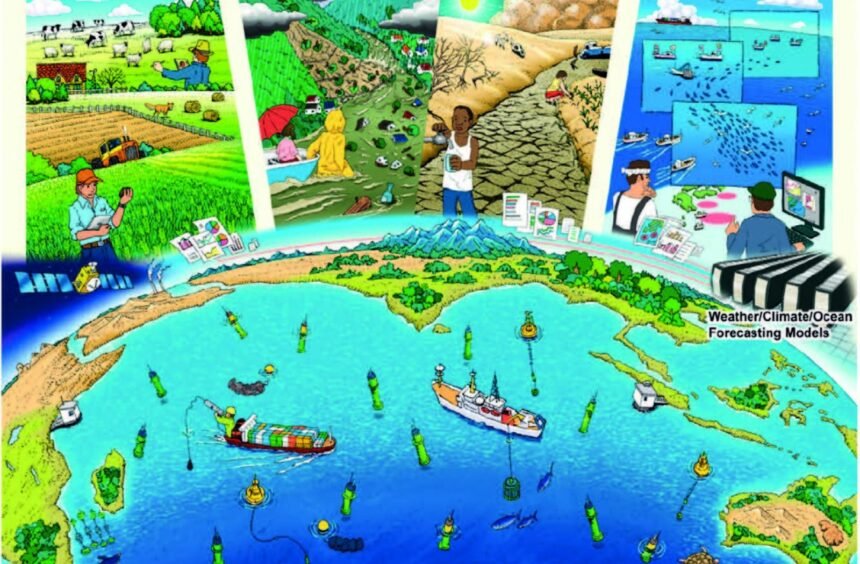Climate change is an imminent threat to the Indian Ocean’s delicate ecosystems and vulnerable coastal communities. With rising sea levels, ocean acidification, and more frequent extreme weather events, the region’s biodiversity and coastal infrastructure are under severe strain. In this article, we delve into the profound impacts of climate change on the Indian Ocean and emphasize the urgent need for effective mitigation and adaptation strategies. Additionally, we highlight innovative initiatives and grassroots movements that strive to safeguard the ocean’s health and bolster its resilience in the face of an ever-changing climate.
The Indian Ocean region is experiencing the full force of climate change, resulting in dire consequences. Rising sea levels pose a grave threat to low-lying coastal regions, making them prone to erosion and inundation. As a result, vulnerable communities face displacement and loss of livelihoods. Moreover, the Indian Ocean is gradually becoming more acidic due to the absorption of excess carbon dioxide, hampering the growth of marine organisms such as corals and shellfish, and disrupting the delicate balance of the entire ecosystem.
Extreme weather events, including cyclones and storm surges, have become more frequent and intense. These phenomena not only endanger lives but also cause extensive damage to coastal infrastructure, including ports, cities, and crucial facilities. Additionally, warmer ocean temperatures have led to the bleaching of coral reefs, further exacerbating the decline of marine biodiversity.
To address the challenges posed by climate change in the Indian Ocean, a comprehensive approach encompassing both mitigation and adaptation measures is crucial. Mitigation efforts should focus on reducing greenhouse gas emissions through sustainable energy sources, promoting energy efficiency, and curbing deforestation. This requires collaborative action among nations, policymakers, and industries to transition towards a low-carbon economy.
Adaptation strategies must prioritize the protection of vulnerable coastal communities. This includes implementing early warning systems, developing resilient infrastructure, and implementing nature-based solutions like mangrove restoration and coastal reforestation. Local communities must be empowered with knowledge and resources to adapt to the changing climate and preserve their traditional sustainable practices.
Innovative Initiatives and Community-Led Efforts (150 words): Despite the daunting challenges, several innovative initiatives and community-led efforts are already underway in the Indian Ocean region. For instance, marine conservation organizations are collaborating with local communities to establish marine protected areas and promote sustainable fishing practices. These initiatives not only safeguard marine ecosystems but also provide economic opportunities for coastal communities.
Furthermore, cutting-edge technologies are being harnessed to monitor and predict climate patterns, aiding in early warning and disaster preparedness. Citizen science initiatives engage the public in data collection and contribute to a better understanding of local climate impacts.
Climate change is an existential threat to the Indian Ocean, but proactive measures can mitigate its impacts. By implementing sustainable practices, empowering communities, and leveraging innovative solutions, we can strive towards preserving the health and resilience of the Indian Ocean for generations to come. Urgent action is needed to navigate the challenges and secure a sustainable future for the region.









